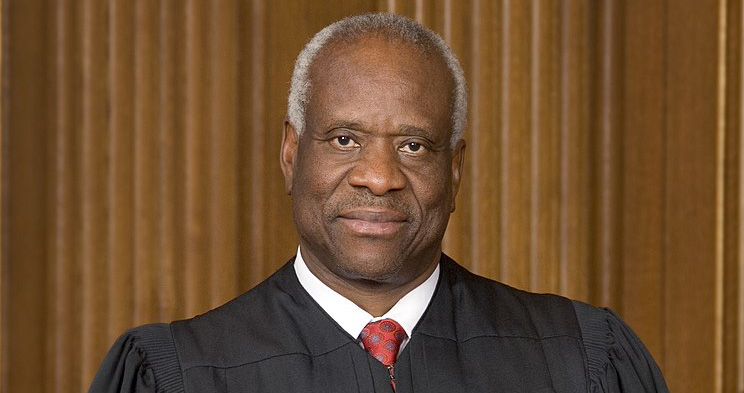Thomas dissent says SCOTUS should overrule decision protecting military from tort liability

U.S. Supreme Court Justice Clarence Thomas.
U.S. Supreme Court Justices Clarence Thomas and Ruth Bader Ginsburg dissented Monday when the high court refused to hear the case of a man whose wife died at a naval hospital because of complications from childbirth.
The petitioner, Walter Daniel, had filed a tort suit in the death of his wife, a Navy lieutenant. The lower courts had ruled that Daniel’s suit was barred by the Supreme Court case Feres v. United States. That 1950 decision had held that military personnel injured by the negligence of a federal employee cannot sue the United States under the Federal Tort Claims Act.
In his dissent from the refusal to grant cert, Thomas said the Supreme Court should have accepted Daniel’s case to consider overruling Feres. Ginsburg did not join Thomas’ dissent.
Feres has had “unfortunate repercussions,” Thomas wrote. He cited a March Supreme Court decision allowing two veterans who developed cancer from asbestos to sue equipment manufacturers, even though asbestos was added to the equipment by the Navy. The majority decision was based on the manufacturer’s duty to warn about the integrated product when it had reason to know that it would be dangerous.
Thomas was one of three dissenters in that March 19 asbestos decision, Air & Liquid Systems Corp. v. DeVries. Ginsburg was in the majority.
Thomas said the court in Air & Liquid Systems Corp. “twisted traditional tort principles” to give the veterans the possibility of relief.
“Such unfortunate repercussions—denial of relief to military personnel and distortions of other areas of law to compensate—will continue to ripple through our jurisprudence as long as the court refuses to reconsider Feres,” Thomas wrote.
The case is Daniel v. United States.
Hat tip to SCOTUSblog.



